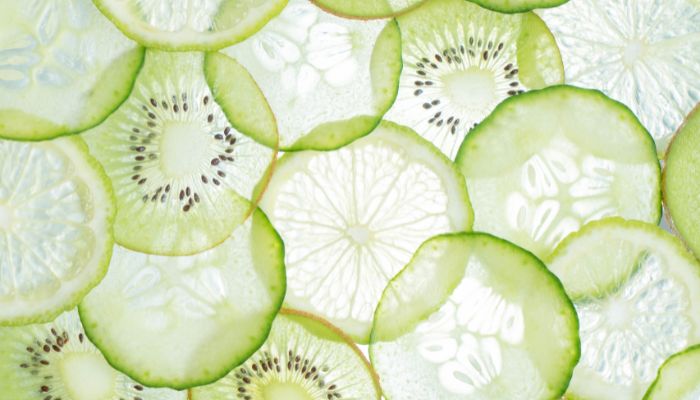In the search for optimal health, vitamin C is a vital component known for its immune-boosting qualities and role in collagen formation. While oranges are frequently associated with vitamin C, several other foods outperform them in this component.
In this post, we will look at a wide selection of foods that not only contain more vitamin C than oranges but also provide various other health benefits. From tropical fruits to vibrant vegetables and exotic berries, these nutritious powerhouses promise to improve your health and energize your taste buds.
Foods with More Vitamin C than Oranges

1. Guava
Guava is high in vitamin C, with approximately 228 milligrams per 100 grams of fruit, more than double the amount found in oranges. Guava contains dietary fiber, vitamin A, potassium, and antioxidants such as lycopene and beta-carotene. It boosts immunity, improves digestion, and may lower the risk of chronic diseases.
2. Kiwi
Kiwi is another good source of vitamin C, with about 92 milligrams per 100 grams, surpassing oranges in vitamin C concentration. Kiwi also contains fiber, vitamin K, vitamin E, potassium, and antioxidants. It improves heart health, digestion, and immune function.
3. Bell Peppers (Red and Yellow)
Red and yellow bell peppers are high in vitamin C, with approximately 127 milligrams per 100 grams for red peppers and 183 milligrams per 100 grams for yellow peppers. Bell peppers are low in calories but high in fiber, vitamin A, vitamin B6, vitamin K, and antioxidants such as beta-carotene and quercetin. They improve eye health, promote skin health, and reduce inflammation.
4. Strawberries
Strawberries contain around 59 milligrams of vitamin C per 100 grams, which is a little less than oranges but still significant. Strawberries are high in antioxidants, such as vitamin C, anthocyanins, and ellagic acid. They promote cardiovascular health, manage blood sugar levels, and may lower the risk of chronic diseases.
5. Papaya
Papaya is a good source of vitamin C, with around 62 milligrams per 100 grams. Papaya is also high in vitamins A, folate, potassium, and antioxidants such as beta-carotene and lycopene. It improves digestive health, skin health, and wound healing.
6. Broccoli
Broccoli is one of the vegetables with the highest vitamin C content, with around 89 milligrams per 100 grams. Broccoli is high in fiber, vitamins K and A, folate, and antioxidants such as sulforaphane and glucosinolates. It improves bone health, promotes detoxification, and may lower the risk of cancer.
7. Brussels Sprouts
Brussels sprouts are a great source of vitamin C, with approximately 85 milligrams per 100 grams. Brussels sprouts are abundant in fiber, vitamins K and A, folate, and antioxidants such as kaempferol and quercetin. They promote heart health, assist digestion, and may help prevent certain types of cancer.
8. Acerola Cherry
Acerola cherries are one of the highest sources of vitamin C, with up to 1,677 milligrams per 100 grams. Acerola cherry contains a high concentration of antioxidants, such as flavonoids and carotenoids. It improves the immune system, lowers inflammation, and promotes skin health.
9. Hardy Kiwi
The Kiwi berry, commonly known as the hardy kiwi, provides about 92 milligrams of vitamin C per 100 grams. The kiwi berry also contains fiber, vitamin E, potassium, and antioxidants. It promotes cardiovascular health, improves digestion, and may improve skin health.
10. Kakadu Plum
Kakadu plum is one of the most abundant sources of vitamin C, with up to 2,300-5,300 milligrams per 100 grams. In addition to vitamin C, the Kakadu plum contains antioxidants such as ellagic acid and gallic acid. It boosts immune function, improves collagen formation, and may help prevent diseases associated with aging.
11. Lychee
Lychee has around 71.5 milligrams of vitamin C per 100 grams. In addition to vitamin C, lychee contains dietary fiber, vitamin B6, copper, and antioxidants such as flavonoids and phenolic acids. It improves immune health, digestion, and wound healing.
12. Pineapple
Pineapple contains around 47.8 milligrams of vitamin C per 100 grams. In addition to vitamin C, pineapple contains bromelain, an enzyme that promotes digestion and may relieve inflammation. It also contains manganese, which promotes bone health and metabolism.
13. Blackcurrants
Blackcurrants are high in vitamin C, with roughly 181 milligrams per 100 grams. In addition to vitamin C, blackcurrants are rich in fiber, vitamin K, potassium, and antioxidants such as anthocyanins. They improve immune health, promote eye health, and may lower the risk of cardiovascular disease.
14. Indian Gooseberry
The Indian gooseberry, also known as amla, is very high in vitamin C, with up to 600-1800 milligrams per 100 grams. Indian gooseberry is also high in antioxidants, such as flavonoids and polyphenols. It boosts immune function, improves digestion, and may benefit skin health.
15. Mango
Mango contains about 36.4 milligrams of vitamin C per 100 grams. In addition to vitamin C, mango contains vitamin A, vitamin E, potassium, and antioxidants such as beta-carotene and polyphenols. It boosts immune function, helps eye health, and aids digestion.
Also Read:
- Is Avocado Toast Actually Good For Your Health?
- Trying Out a Plant-Based Diet? Here’s Everything You Need to Know
- Amazing Health Benefits Of Lemon That Many Don’t Know
Vitamin C Benefits
Vitamin C, commonly known as ascorbic acid, has multiple health benefits and is crucial for a variety of physiological functions. Here are some important benefits of vitamin C:
Antioxidant Protection
Vitamin C is a powerful antioxidant that protects cells from free radicals. Free radicals are unstable molecules that can cause oxidative stress and contribute to chronic conditions like heart disease, cancer, and aging. Vitamin C contributes to overall health by neutralizing free radicals.
Immune Support
Vitamin C, one of its most well-known properties, is needed for immune system support. It promotes the development of white blood cells, which are essential for fighting infections and diseases. Vitamin C supplementation may shorten the length and severity of common colds and other respiratory diseases.
Heart Health
Vitamin C may lower the risk of heart disease by promoting healthy blood pressure and supporting endothelial function, which is required for appropriate blood vessel dilation and circulation. Furthermore, its antioxidant properties may help reduce the oxidation of LDL cholesterol, lowering the risk of atherosclerosis and cardiovascular disease.
Eye Health
Vitamin C, along with other antioxidants such as vitamin E and beta-carotene, may help lower the incidence of age-related macular degeneration (AMD), which is the major cause of vision loss in older persons. These antioxidants protect the eyes against oxidative damage and promote general eye health.
Stress Reduction
Vitamin C has been demonstrated to help reduce the physical and psychological impacts of stress by regulating cortisol levels and promoting adrenal gland function. Adequate vitamin C intake may improve mood, reduce anxiety, and boost general stress resistance.
Gut Health
Vitamin C promotes the growth of healthy gut bacteria and helps to maintain the integrity of the gut lining. It also reduces inflammation in the digestive system, which may help with symptoms of inflammatory bowel disease (IBD) and irritable bowel syndrome (IBS).
Conclusion
While oranges are usually associated with vitamin C, many other foods provide much higher levels of this vital nutrient. From tropical fruits like guava and kiwifruit to colorful bell peppers and nutrient-rich berries, the options are plentiful. By including these vitamin C-rich foods in your diet, you may boost your immune system, promote skin health, and improve your overall well-being.




